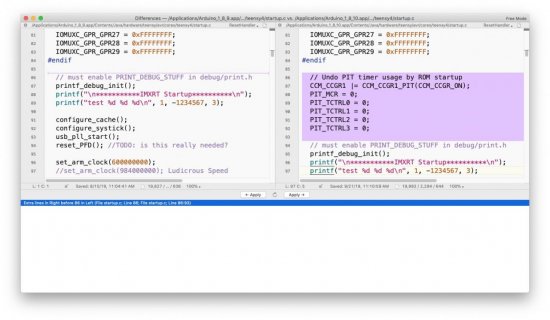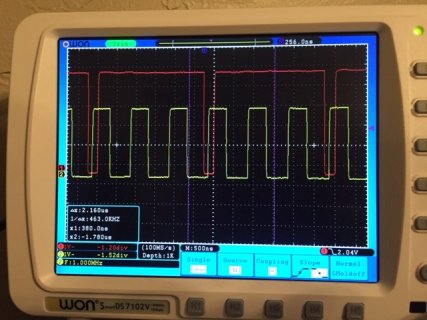defragster
Senior Member+
@Paul:
Did the Arduino folks somehow cause a break in this "Multiple libraries were found for" code in 1.8.10??
It triggers that often and only shows a single library name.
pbgbg
Did the Arduino folks somehow cause a break in this "Multiple libraries were found for" code in 1.8.10??
Multiple libraries were found for "SerialFlash.h"
Used: /Applications/Arduino.app/Contents/Java/hardware/teensy/avr/libraries/SerialFlash
Multiple libraries were found for "Audio.h"
Used: /Applications/Arduino.app/Contents/Java/hardware/teensy/avr/libraries/Audio
Multiple libraries were found for "Wire.h"
Used: /Applications/Arduino.app/Contents/Java/hardware/teensy/avr/libraries/Wire
Multiple libraries were found for "SPI.h"
Used: /Applications/Arduino.app/Contents/Java/hardware/teensy/avr/libraries/SPI
Multiple libraries were found for "SD.h"
Used: /Applications/Arduino.app/Contents/Java/hardware/teensy/avr/libraries/SD
It triggers that often and only shows a single library name.
pbgbg



